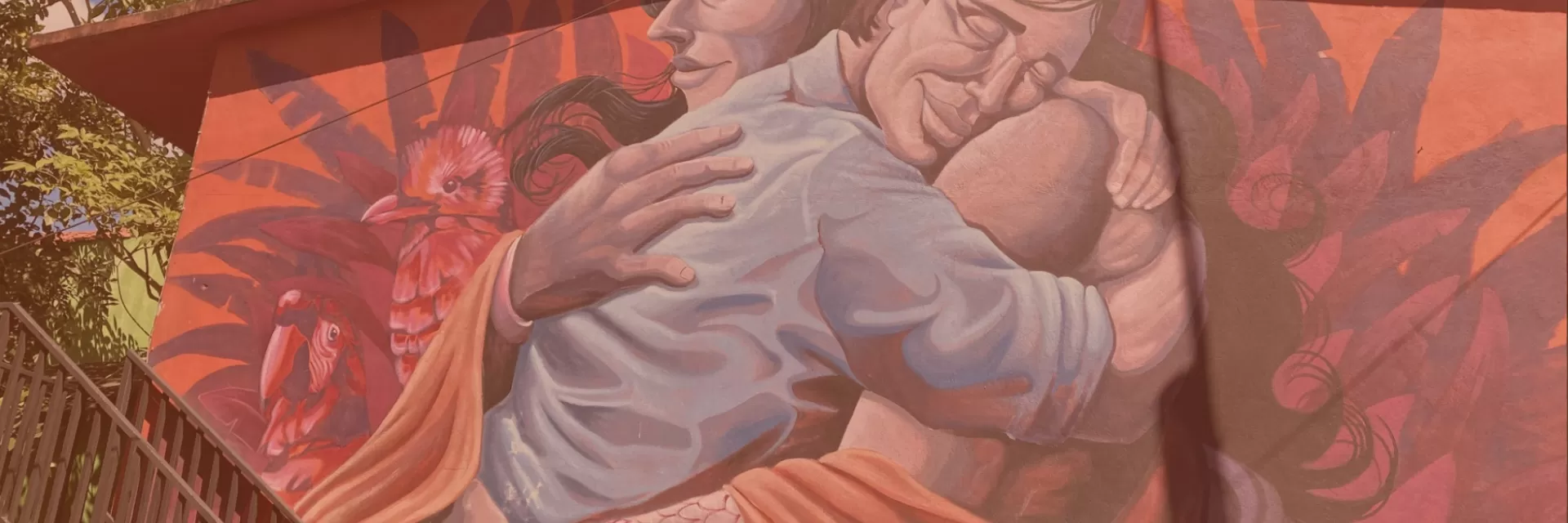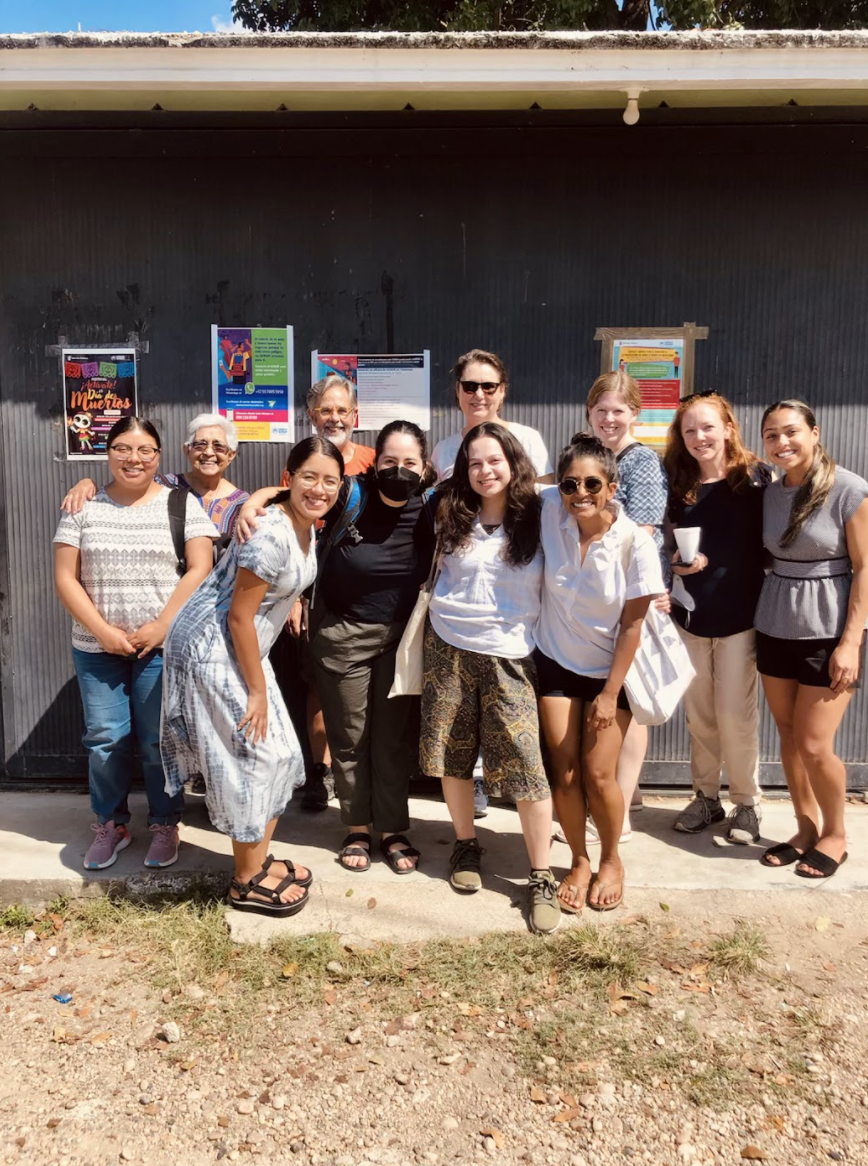
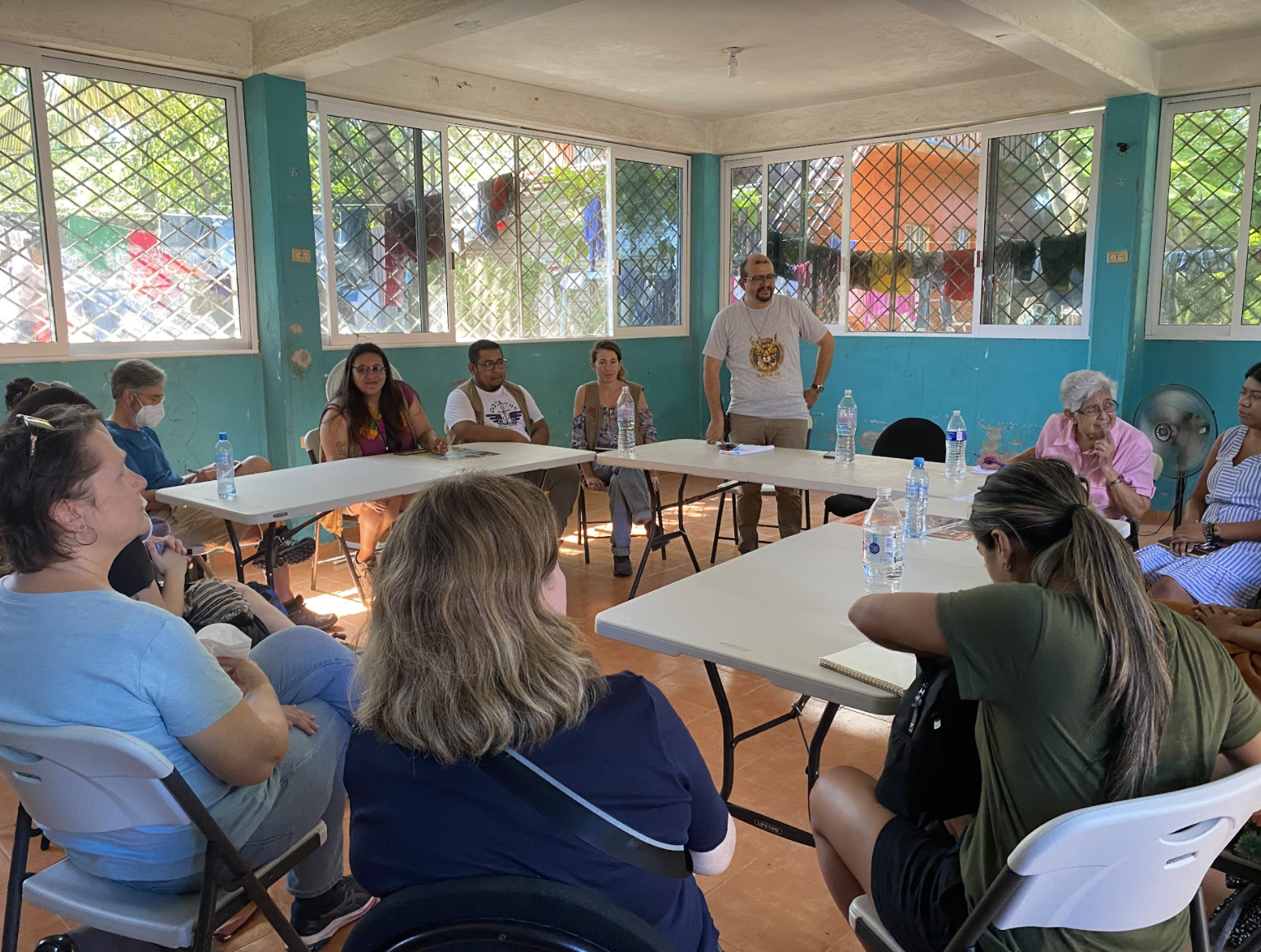 November 14 to 18, seven amazing participants from IRAP, Detention Watch Network, AILA, the Immigration Hub, Witness at the Border, and the Sunita Jain Anti-Trafficking Initiative joined Quixote Center staff on our second solidarity trip to southern Mexico. The group members work in immigration advocacy, law, and communications, defending the rights of immigrants in the United States.
November 14 to 18, seven amazing participants from IRAP, Detention Watch Network, AILA, the Immigration Hub, Witness at the Border, and the Sunita Jain Anti-Trafficking Initiative joined Quixote Center staff on our second solidarity trip to southern Mexico. The group members work in immigration advocacy, law, and communications, defending the rights of immigrants in the United States.
On our first full day in Tenosique, Mexico, we spoke extensively with shelter staff and migrants at the La 72 shelter. Since our most recent visit in June, La 72 has grown from welcoming 100 migrants a day to anywhere between 200-300 a day, and has seen a large increase in Venezuelans.
With the recent expansion of Title 42, the Venezuelan families we spoke with now face impossible decisions: whether to continue on to the United States and risk removal to Venezuela, or apply for refugee status in Mexico and risk losing the ability to apply for humanitarian parole in the US.
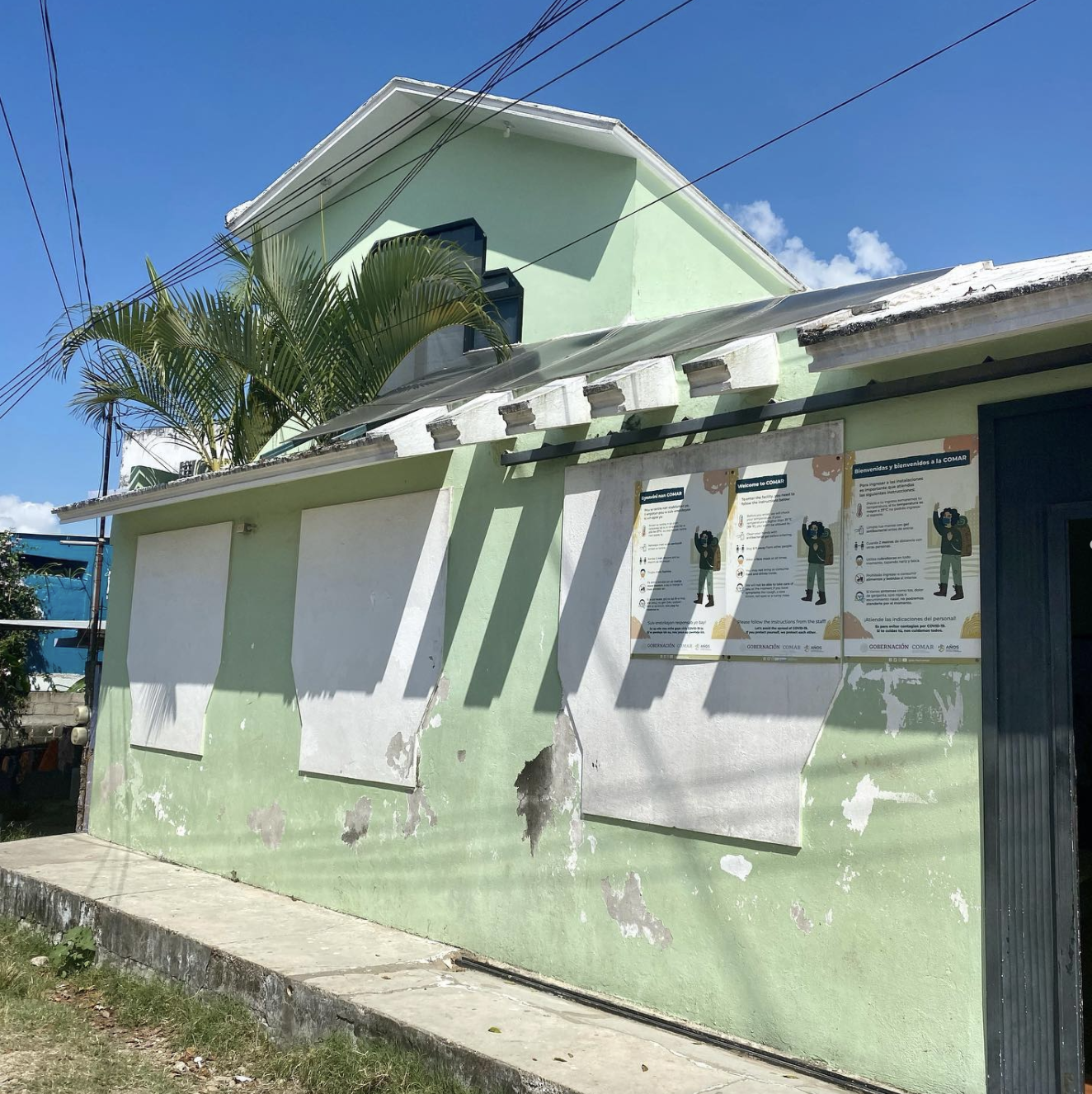
November 15th was also the day that a federal court struck down Title 42, leaving all of us, and especially migrants at La 72, grappling to understand the implications.
We started off the second day with a meeting with COMAR, the Mexican humanitarian immigration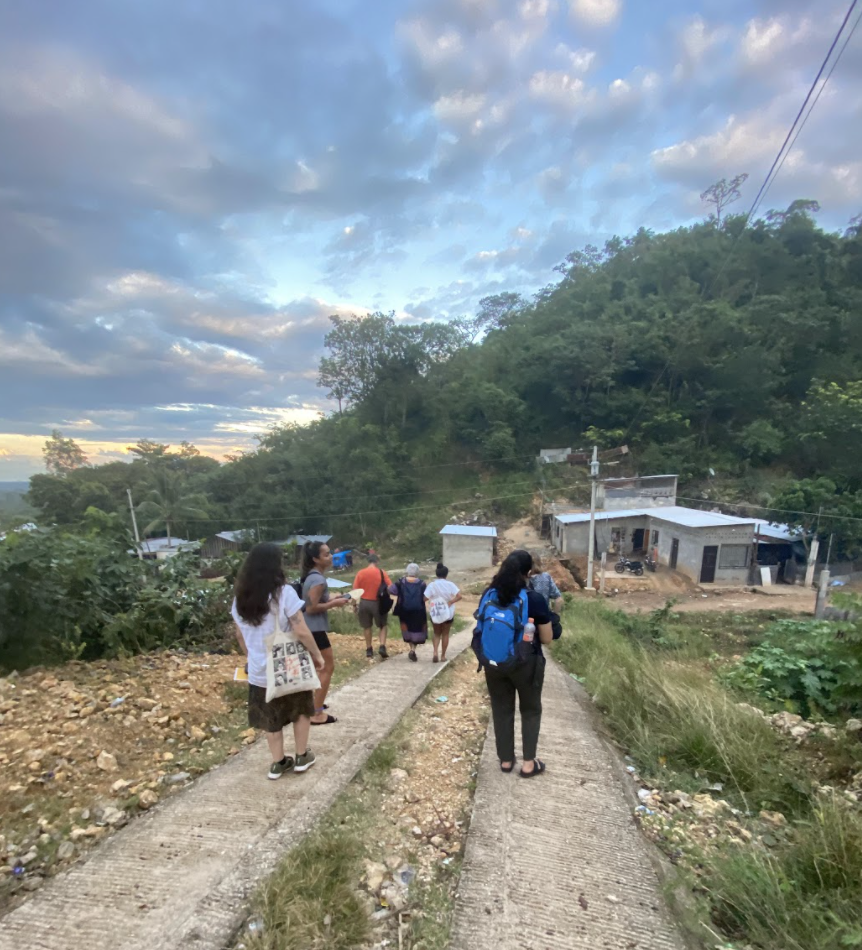 department that grants refugee status to those applying for asylum in Mexico. Afterward, we crossed the border into El Ceibo, Guatemala, to visit our partners at Casa del Migrante Belén.
department that grants refugee status to those applying for asylum in Mexico. Afterward, we crossed the border into El Ceibo, Guatemala, to visit our partners at Casa del Migrante Belén.
On the way, we witnessed a bus carrying people who were being deported from the United States. Our La 72 partners told us that many Honduran migrants are released at the Mexico-Guatemala border crossing in El Ceibo, despite the lack of a reception center to help them, and despite having no ties to Guatemala.
In El Ceibo, we were surprised to find the migrant shelter empty. 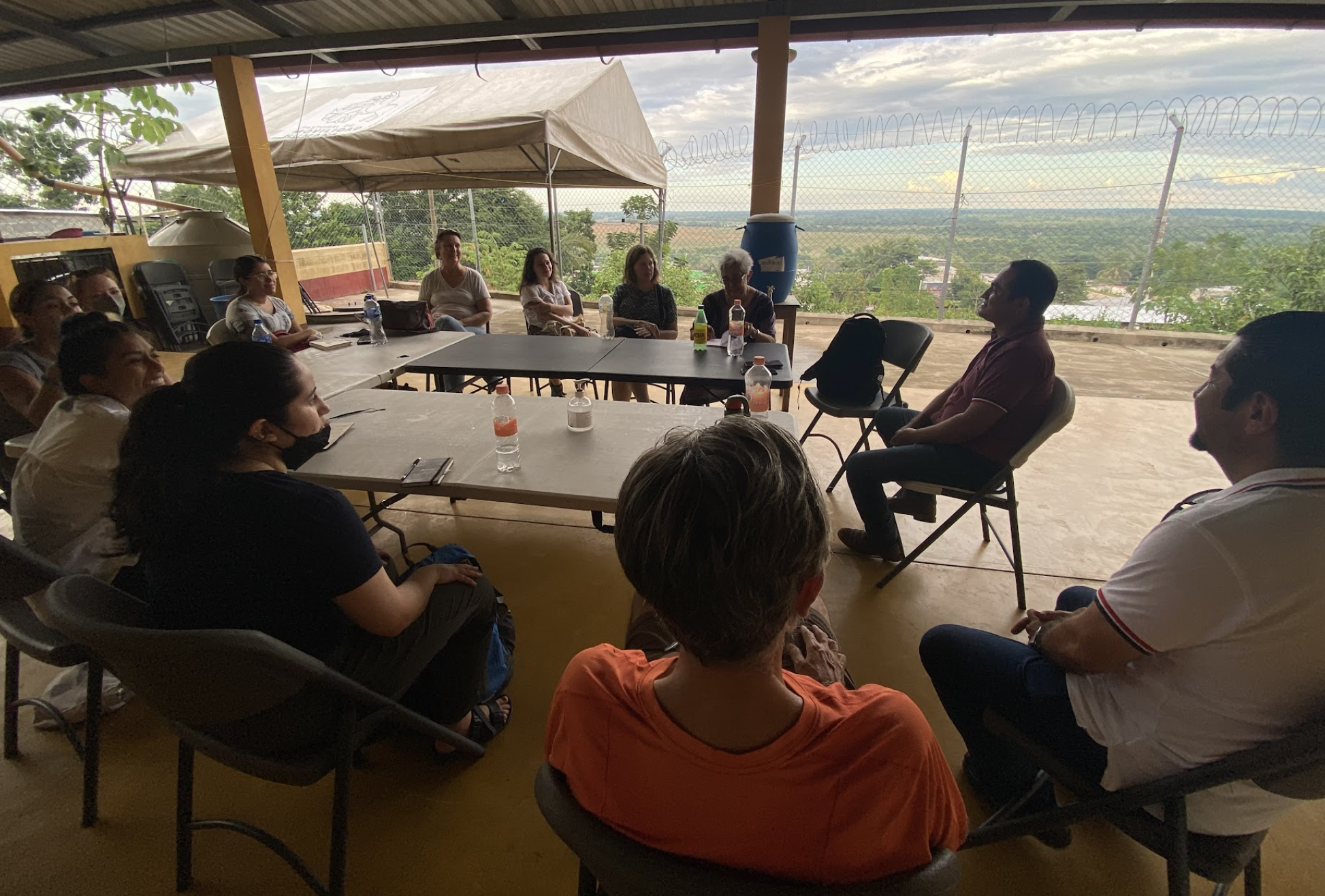 Our partner explained that most are now choosing to take more dangerous, remote routes to Tenosique in order to avoid having to pay multiple bribes to immigration enforcement. Less than a year ago, during two emergencies, the shelter was welcoming over 200+ people a day, despite only having space for 30 adults.
Our partner explained that most are now choosing to take more dangerous, remote routes to Tenosique in order to avoid having to pay multiple bribes to immigration enforcement. Less than a year ago, during two emergencies, the shelter was welcoming over 200+ people a day, despite only having space for 30 adults. 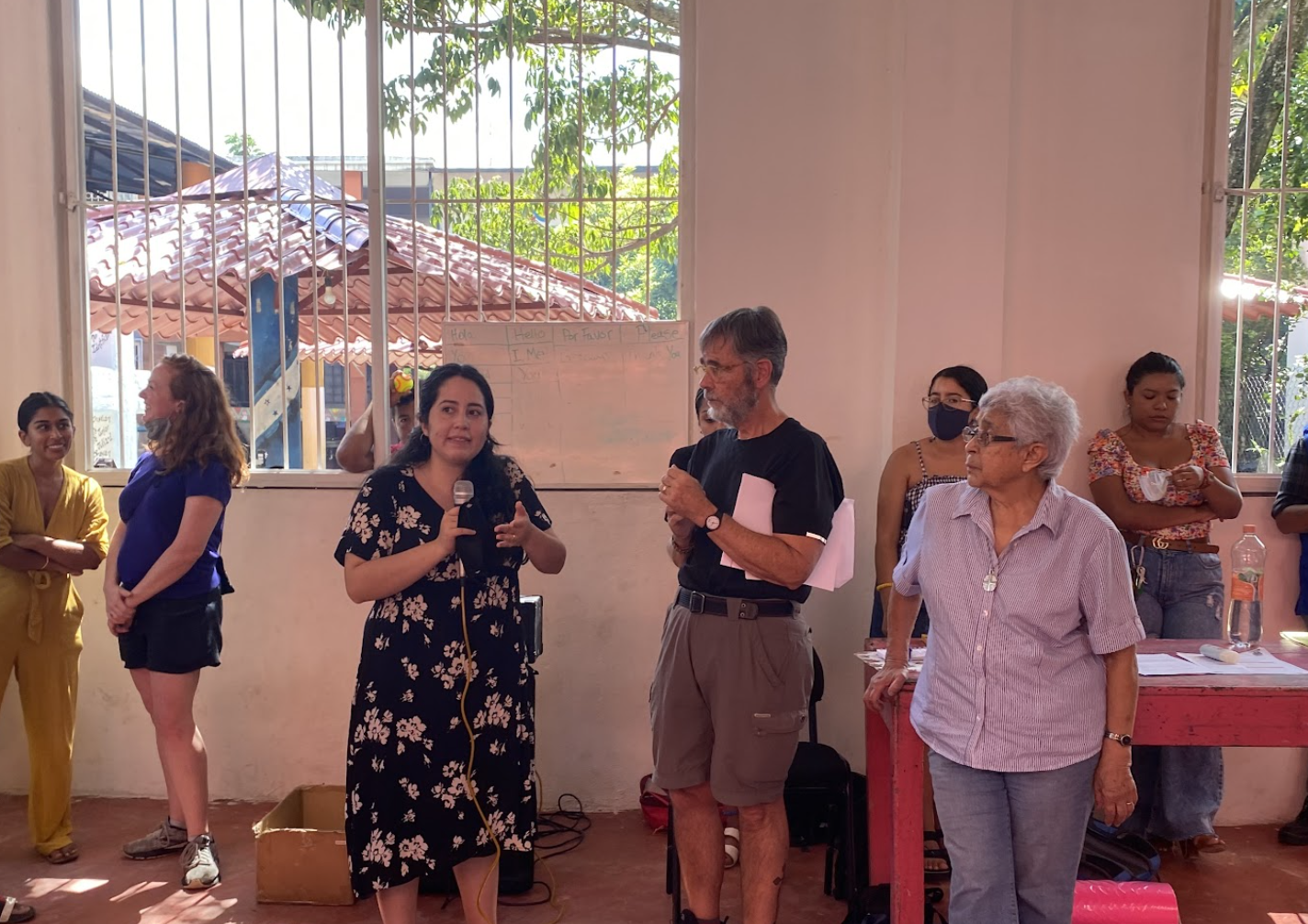
The next day, the trip participants led a policy and legal orientation on what migrants can expect to encounter on their journey, including updates on Title 42, humanitarian parole for Venezuelans, and different kinds of relief many migrants could benefit from but are often unaware of, such as Special Immigrant Juvenile (SIJ) status.
Afterward, we met with LGBTQ+ migrants and discussed their hopes and dreams for the future. La 72 is one of the few shelters along the migrant trail that provides specialized services and housing for LGBTQ+ migrants.
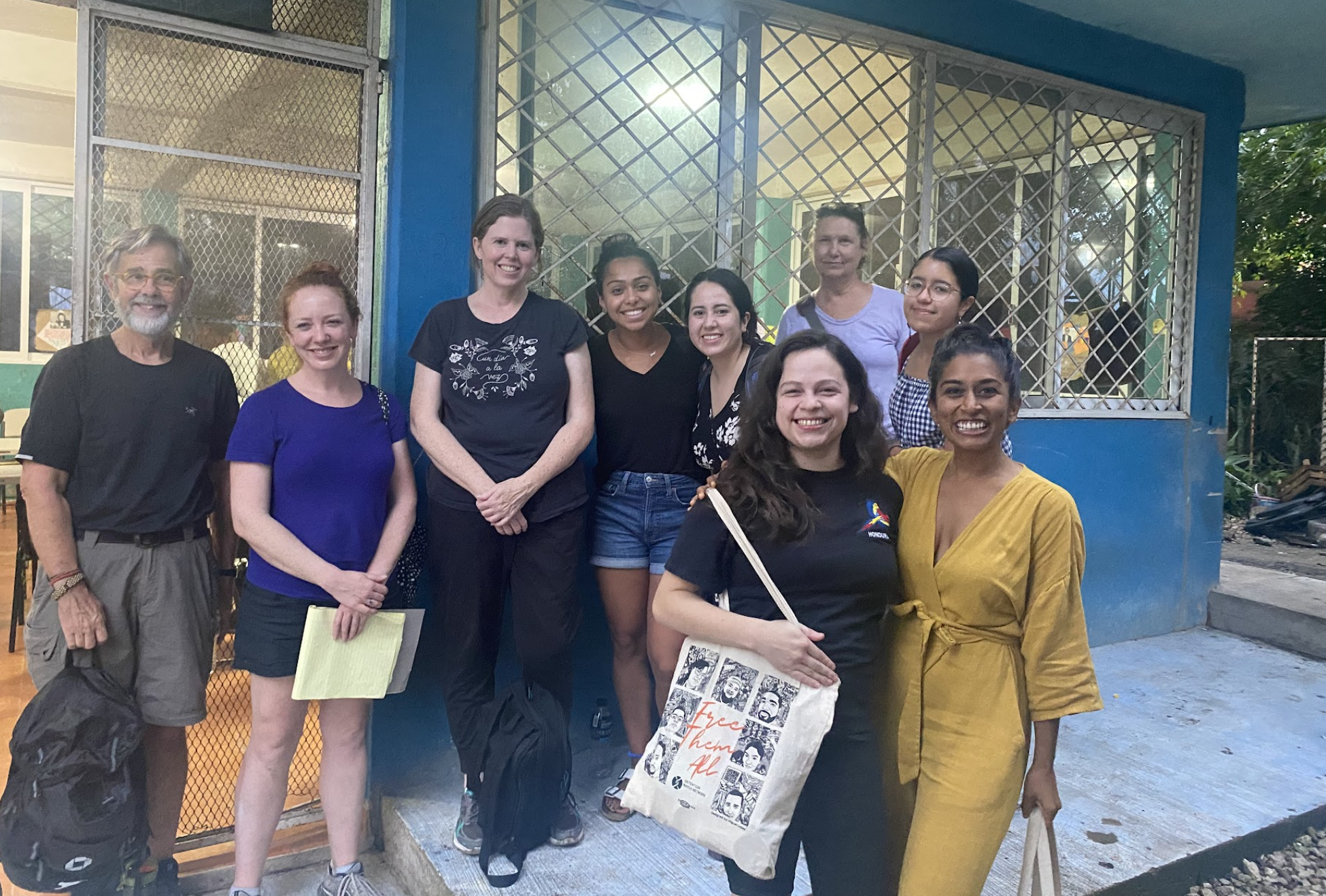 Our hope in creating a travel program has always been to bring more awareness to the perilous journey many people must take in the hopes of seeking safety, as well as to inform and assist the work of our partners. In our interactions with the participants during and following the trip, it is clear that this trip has been transformative in their professional and everyday lives, energizing their advocacy for immigration justice as they communicate with colleagues, policymakers, and the general public.
Our hope in creating a travel program has always been to bring more awareness to the perilous journey many people must take in the hopes of seeking safety, as well as to inform and assist the work of our partners. In our interactions with the participants during and following the trip, it is clear that this trip has been transformative in their professional and everyday lives, energizing their advocacy for immigration justice as they communicate with colleagues, policymakers, and the general public.
To learn more about the work of La 72, visit their website HERE.
